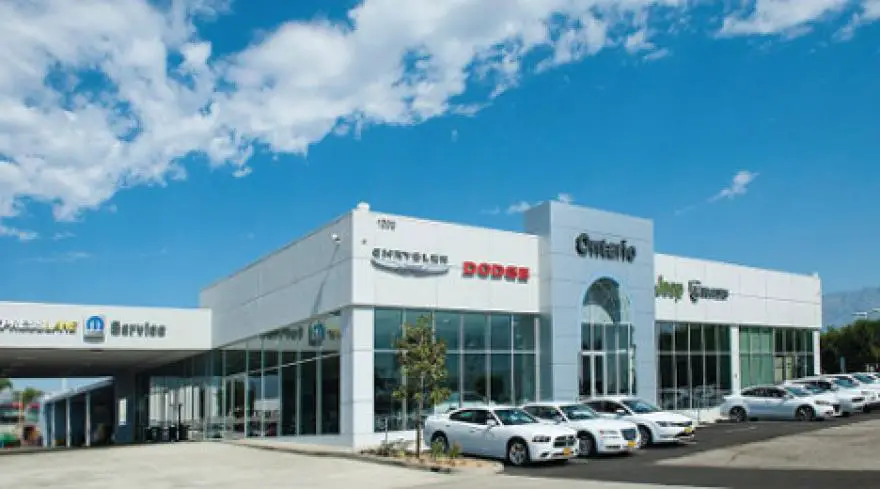When you think of automotive manufacturers, names like Ford, General Motors, and Toyota likely come to mind. However, behind every major brand lies a vast network of dealers that are truly the front lines of the auto industry. Fiat Chrysler Automobiles (FCA) dealerships play a vital role in selling and servicing FCA vehicles for customers across North America and beyond.
In this blog post, we’ll explore the integral place of FCA dealers within the company’s business operations and sales strategies. We’ll look at the requirements for starting an FCA franchise, how dealerships are adapting to changing consumer behaviors, and the evolving role technology is playing in the dealership experience.
FCA’s Franchise Model
Like other automakers, FCA utilizes a franchise business model for dealer operations. Prospective dealers apply through FCA for rights to exclusively sell, service, and represent a specific brand – Jeep, Dodge, Ram, Chrysler, Fiat, etc. – within a defined geographic area.
FCA carefully selects dealer partners based on facilities, experience, financing, and marketing abilities. Successful applicants receive a franchise agreement lasting 5-10 years with opportunities for renewal. In exchange, FCA provides vehicle inventory, factory training, signs, marketing funds, and more.
This setup maintains brand consistency while empowering independent businesses to serve localized markets independently. However, dealers must still meet FCA standards on facilities, customer service, and sales performance to retain franchises. Noncompliance can result in termination.
Key Benefits For Automakers & Consumers
FCA’s franchised dealer network provides some key advantages:
- Nationwide Retail Presence: Dealers establish facilities spanning cities and suburbs for optimized consumer access.
- Local Market Expertise: Independent owners understand regional trends to best position brands and inventory.
- Customer Service Investment: Dealers financially invest in top-rate facilities, parts inventories, and certified technician teams.
- Shared Marketing Resources: Combined local dealer and manufacturer spending amplifies brand messaging reach.
- Risk Sharing: While dealers bear facility and staffing costs, automakers share vehicle and incentive risks seasonally.
- Jobs & Economic Impact: Over 3,400 FCA dealers in North America employ hundreds of thousands and bolster local economies.
This symbiotic relationship succeeds at simultaneously serving large-scale automakers and community-level auto shoppers across diverse regions.
Adapting to Changing Customer Behaviors
Like all businesses, FCA dealers must evolve constantly to suit shifting consumer preferences, especially younger buyers with different buying habits than in the past. Digital transformation has become imperative:
- Online Sales & Appointments: Dealers enhance e-commerce for self-guided research, paperwork, and test drive booking from any device.
- Video Product Demos: Live chat, videos, and 3D configurators bring the full sales experience virtually to those preferring remote initial interactions.
- Streamlined Financing: Online rate checks, loan applications, and credit approval simplified the process to a few clicks.
- Remote Support: From home delivery to virtual walkarounds to telematics-enabled service monitoring – customers expect maximum convenience.
- Mobile-First Sites: Clean, minimalist UX designs adapted for small screens ensure platforms meet customers where they are.
Adopting advances like these allows FCA dealers to retain traditional strengths while meeting digital natives on their preferred terms.
Technology Driving Operational Change
There’s no avoiding how emerging technologies are also reshaping internal dealer operations:
- Predictive Analytics: Dealers utilize customer, inventory, and sales data to precisely anticipate demand and streamline logistics like just-in-time delivery.
- Virtual/Augmented Reality: Showroom visitors gain engaging previews of new models through VR configs or AR features empowering remote consultations too.
- Artificial Intelligence: AI expedites tasks like automated dynamic pricing, predictive maintenance, computer vision-based vehicle inspections, and real-time service recommendations.
- Internet of Things: Integrating IoT monitors vehicle health, forecasts part replacements, and ensures optimum service bay throughput via digital job dispatching.
- 3D Printing: Additive manufacturing produces prototypes and unique replacement components on demand, cutting lead times.
Adopting these technologies boosts efficiencies and aids in modernizing the customer experience at dealers better supporting cutting-edge vehicles.
Future Outlook
While dealers face challenges adapting to digital disruption, their importance to automakers and as local economic drivers is unlikely to diminish anytime soon. FCA dealerships will remain focal points for communities as personal transportation needs evolve. Factors like:
- Electric mobility infrastructure investments and maintenance/repair expertise
- Autonomous vehicle readiness via optimized facilities and workforce training
- Mobility as a Service partnership to transform dealerships as mobility hubs
- Subscription/leasing models representation and management
- Online trade-ins, used inventory liquidation, and certified pre-owned programs
Ensure FCA dealers stay on the leading edge supporting emerging mobility options. Their entrepreneurial spirit driving continuous reinvention bodes well for supporting FCA brands and consumers far into the future with world-class sales and aftermarket care.
About Author
- Fully Funded Medical School Scholarships for International Students
- “From Skilled Worker to Permanent Resident: Canada’s Express Entry System”
- “Career Corners: Hot Industries for Jobs in the United States”
- Apply now – Taxi Driver Urgently needed in USA free visa and Application
- Apply Now – Tailoring Jobs in Canada with free Visa and Application
- 11 Best Canada MBA Scholarships for International Students
- “Healthcare Careers in the Great White North”
- “H1-B Visa Guide: Navigating the US Work Immigration Process”

